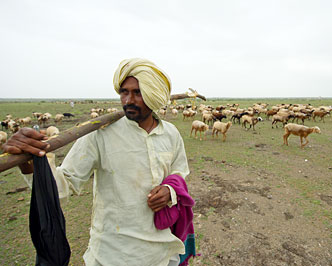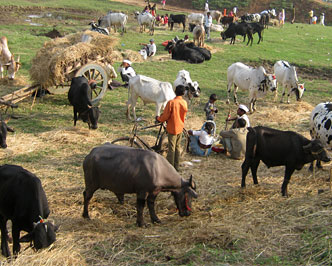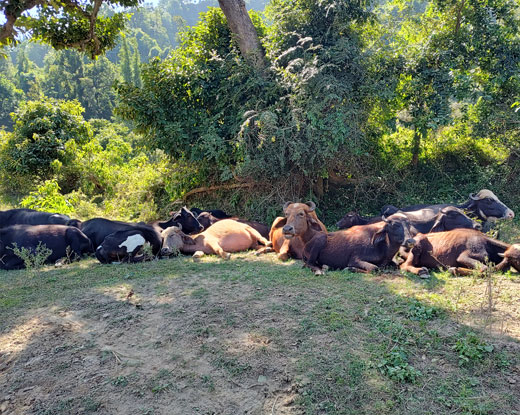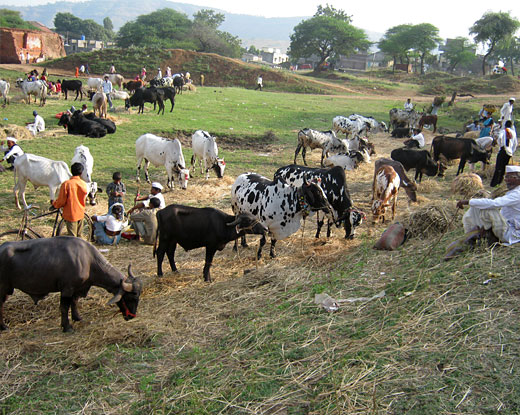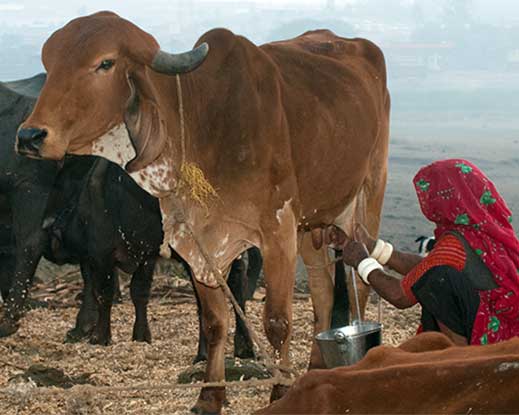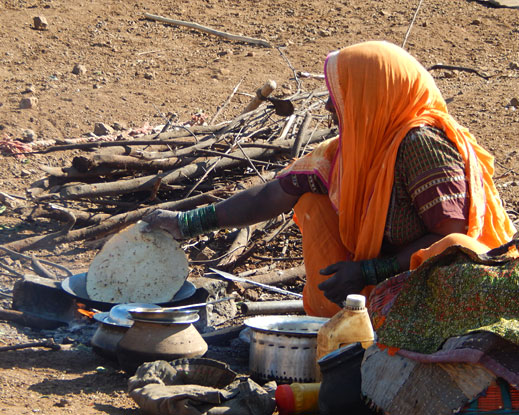Partnering through Knowledge Sharing: Helping Small Livestock holding Communities emerge from the Shadows
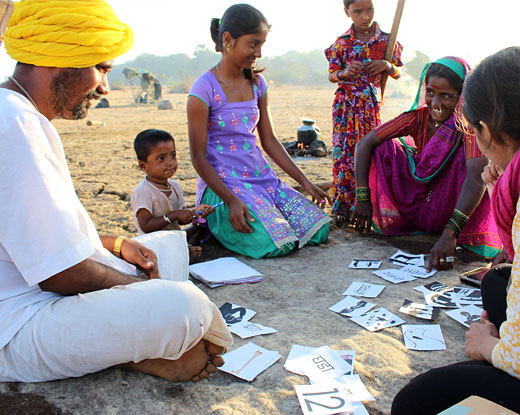
This umbrella project addresses problems faced by small livestock owners and migratory pastoral communities who are often invisible and unaccounted for in census reports and state registers.
These include groups like the Dhangar, Kurumar , Krishna Golla and Kuruba shepherding communities the Deccan. The cattle herding Nanda Gawlis., Melghat Gawlis , Mathura Banjaras , Golkars and Maldharis. the project also includes several tribal groups rearing goats and poultry, small farmers and other marginalised groups raising ‘forgotten stock’ such as ducks, pigs, and donkeys.
Through this project we have been trying to understand these communities, map the geographical region they live in, as well as the changes these communities undergo in a rapidly changing environment. As part of the project we have come up with workable models of maternal health which have been piloted with women from migratory groups in Maharashtra. We have also come up with workable models for education which are being used by migratory groups of shepherds in Maharashtra. These exciting new models combine modern emerging technologies such as mobile phones, the internet and solar energy systems to reach out to communities who are themselves mobile and constantly on the move.
We are now partnering with groups in the states of Karnataka, Gujarat, Maharashtra, Uttaranchal, Himachal Pradesh, and Jammu & Kashmir to take the learning from this project ahead and share the models with many more groups.
The overall aim of this project is to work closely with several small livestock rearing communities to help them secure a better livelihood. We do this by partnering with them and sharing knowledge. Through the project we are also understanding the access that migratory pastoral groups have to maternal and child health care and education and looking at ways to improve their access to essential services.
Some of the key outputs of this project are :
- Improved health of livestock and the family that owns them
- Increased access to education
- Better marketing opportunities for value added products
This project is supported by Misereor Germany


